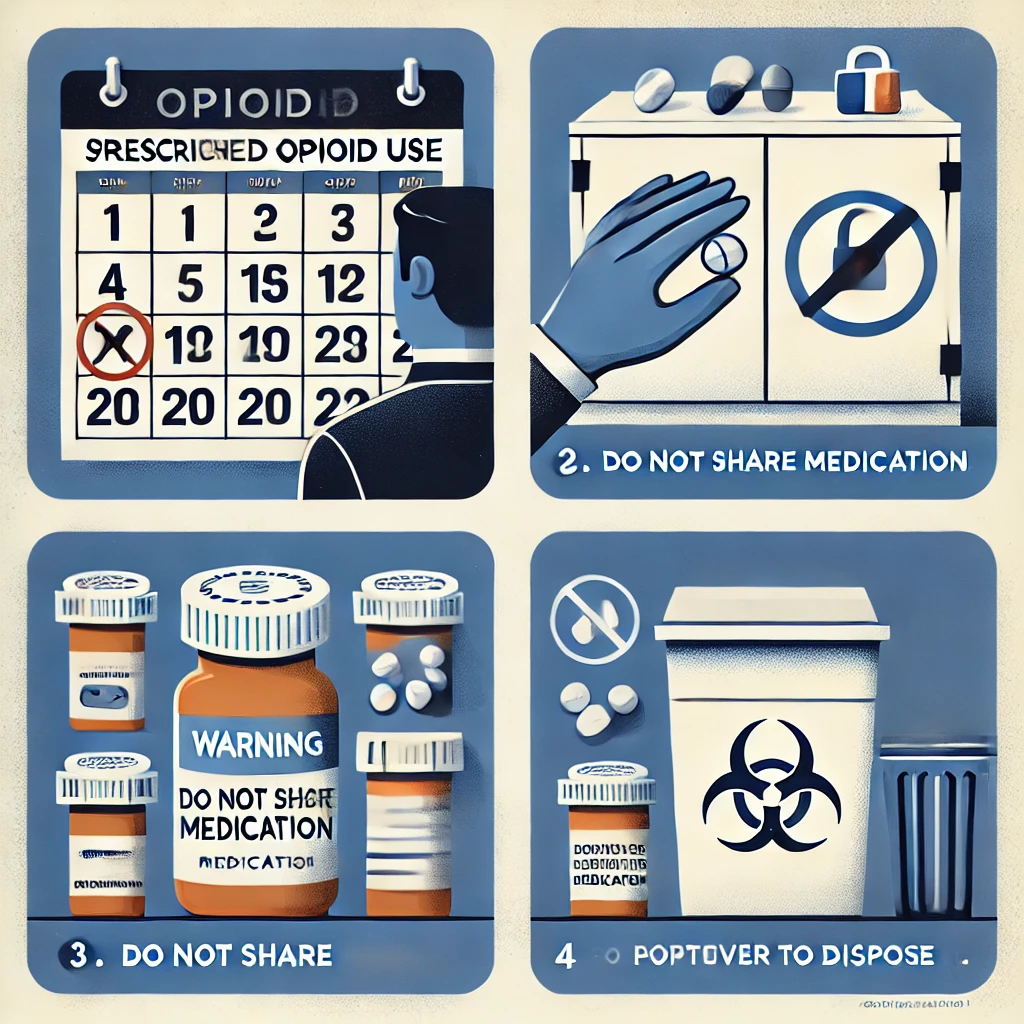
Fresno Stands Up to Overdose: Inside the Narcan Awareness Event at New Life Recovery
On June 19, 2025, a powerful gathering took place at the corner of Broadway Street and Nevada Avenue in Central Fresno. Community members, first responders,
Using opioids, whether prescribed or otherwise, comes with serious risks, including overdose, addiction, and other health complications. While the safest approach is to avoid misuse, if you or someone you care about uses opioids, it’s important to take steps to minimize potential harm. This blog will focus on practical tips to protect yourself, ensuring you stay as safe as possible.
1. Develop an Overdose Plan
An overdose can happen quickly and without warning, so it’s critical to have a plan in place. Discuss with your family and friends what they can do if you overdose. Ensure they know how to recognize the signs of an overdose, where to find naloxone, and how to administer it. An overdose plan can make all the difference in a life-threatening situation.
2. Carry Naloxone at All Times
Naloxone, also known by the brand name Narcan, is a life-saving medication that reverses the effects of an opioid overdose. Carry it with you wherever you go, and inform those around you that you have it and where to find it. Naloxone is easy to use, and having it on hand can save your life or the life of someone else. Remember, a second dose might be necessary, so always have multiple doses available.
3. Avoid Using Opioids Alone
Using opioids when you’re alone is especially dangerous. If you overdose, there will be no one around to help. Having a trusted person nearby increases the chances that someone can call for help and administer naloxone if needed. If no one is available to be with you, consider using a service like “Never Use Alone,” which provides remote monitoring to ensure someone is alerted in case of an emergency.
4. Understand the Risks of Mixing Drugs
Mixing opioids with other substances, including alcohol, can significantly increase the risk of an overdose. Many fatal overdoses occur because opioids are combined with other depressants, which can slow breathing to dangerous levels. If you’re using opioids, avoid mixing them with other drugs to reduce the risk of an adverse reaction.
5. Consider Your Overall Health
Your general health can influence the risks associated with opioid use. If you have conditions like asthma, respiratory issues, kidney or liver problems, or HIV, your body may be more vulnerable to the effects of opioids, increasing your risk of overdose. Be mindful of your health and how it may impact your opioid use, and take extra precautions to stay safe.
Conclusion
Taking opioids carries inherent risks, but by following these safety tips, you can reduce the chances of harm. Developing an overdose plan, carrying naloxone, avoiding using alone, being cautious about mixing substances, and considering your health are all critical steps in protecting yourself. Stay informed, stay prepared, and take proactive measures to ensure your safety or the safety of those you care about.

On June 19, 2025, a powerful gathering took place at the corner of Broadway Street and Nevada Avenue in Central Fresno. Community members, first responders,

For individuals who inject opioids, the risks are heightened due to the method of use and the potential for infection. Safe practices are crucial to

If you’ve been prescribed opioids for pain management, it’s crucial to use them responsibly. While opioids can be effective for managing severe pain, they also